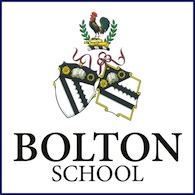So much has been written and said this week about school testing. True û people donÆt grow by measuring them. True û if you do measure them and they fall behind their expected height it helps to ask what might be done. LetÆs be clear that the exam system we have arises from a long history and several, often very different, origins. It is not even remotely perfect. However, I have come to think it never will be and so the best plan is to support the pupils through those times, and to never forget that whilst we must teach them for the exams it is important to educate them as well. It would be nice if teaching to pass exams and education were the same task, but they are not, possibly never have been and probably never will be.
If we look far back the purpose of exams in ancient crafts and guilds was to prove your apprenticeship. Having watched, then worked with, a skilled craftsman, the student would take an exam to prove that they were ready to work alone. Many vocational exams follow this tradition.
Much of the fabric of the academic exam system has its origins in Civil Service exams, better suited to selecting people to run a Victorian Empire. A levels began as an entry test for University, not as the end point of study at school. GCSE tests have their origins in the school leaving certificate and remain even though the school leaving age has increased. The SAT tests measure pupils but really have their origins in systems to measure schools.
Add to this different views about whether we examine skills or learning, memory or interpretation. Of course they are not mutually exclusive categories but changing fashion usually favours one or the other. Another dimension is whether we have testing that is ænormÆ referenced or æcriterionÆ referenced. A driving test is criterion referenced û you either pass or fail, you canÆt pass well. This is the apprentice tradition. A 400m race is ænormÆ referenced, it rates you depending on how everyone else has run û from fastest to slowest. This is the tradition stemming from entrance exams. In fact what we have now is a mix of all of these historical inputs and quite a jumble.
Results are important, of course, as the passport to the next stage of education and life. But much more important to pupils in the future will be all the other things they have learned at school that cannot be examined and we should never, ever, try to do so.
This article first appeared in The Post, a newspaper distributed by Bolton News.

Leave a Reply